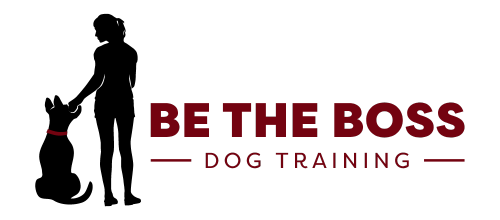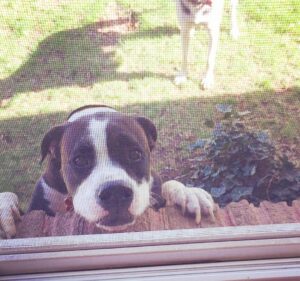Listen up, people. Stop putting your dogs and puppies in the backyard unattended. Does this sound a little harsh? Maybe. But a vet bill for $1000+ when your pup ingests a pillow from the outside lawn furniture sure feels a lot harsher.
My clients come to me and want me to help with stopping their dogs from digging holes in the backyard, chewing up lawn furniture and jumping the fence. The first thing I ask them is “where were YOU?”
Puppies and dogs have the mental capacity of a 2-4 year old. I have never met one responsible parent who left their toddler unattended in the backyard for hours at a time. Our dogs are no different.
I understand that you want the dog to get some fresh air and exercise when you don’t have time for a walk. I do too! But backyards make poor babysitters and GREAT demolition derby zones. It is the perfect environment for dogs to practice bad behavior to their loyal canine heart’s content.
A dog needs structured exercise and designated playtimes. Stop using big words, Bethany, what does that even mean?
This means go for a walk with your dog. Put a leash on your dog, teach them how to heel…then go for a walk around the neighborhood. Get out and smell the roses. Give your dog a chance to do what they do best…walk and sniff. Then come home and teach them tricks or play fetch.
You made the choice to bring a pup into your life, give them some attention and more importantly keep them safe!
More Tips
Check out our other posts
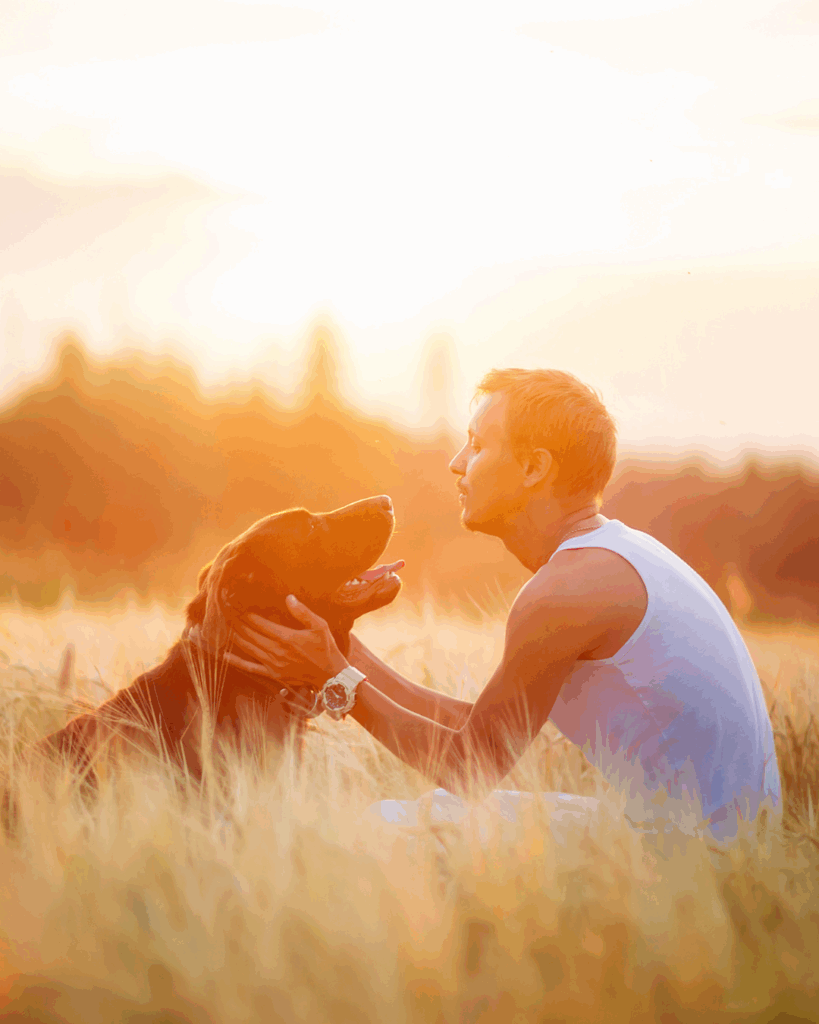
How Long Does It Take to See Progress in Dog Training?
Wondering why your dog’s training feels stuck—or when you’ll finally see real progress?
This blog breaks down the truth behind training timelines and what actually influences how fast your dog learns. From busting the myth of “easy breeds” to showing you what progress really looks like (even if it’s not perfect yet), you’ll get clear, practical insights designed to help you move forward with confidence.
Discover the fastest fixes for frustrating behaviors, why skipping structure always backfires, and how to spot the early signs that your dog is getting it—even if it doesn’t look like obedience just yet.
👉 Tired of guessing how long it’ll take? Click here to read the full blog!
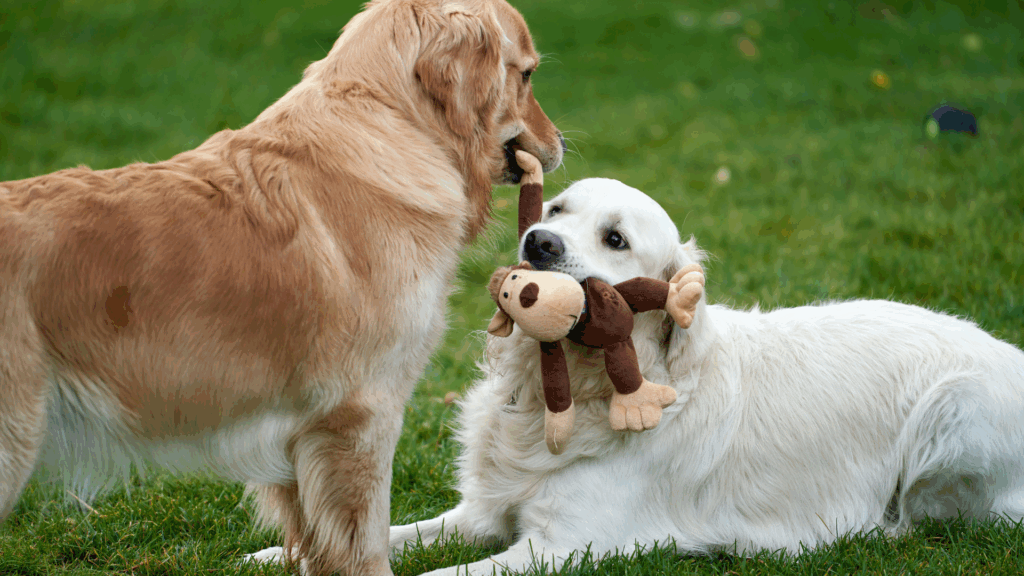
Why Do My Dogs Fight at Home but Get Along Outside?
Tired of peace at the dog park and chaos at home? You’re not crazy—just caught in the middle of some serious pack politics. This blog breaks down why your dogs fight indoors but play nice outside, and what you can do to restore the calm (without giving up your couch). From jealousy to turf wars, you’ll get the clarity and quick wins you’ve been missing.
Are your dogs total angels outside but drama queens at home?
👉 Click here to read the full blog!
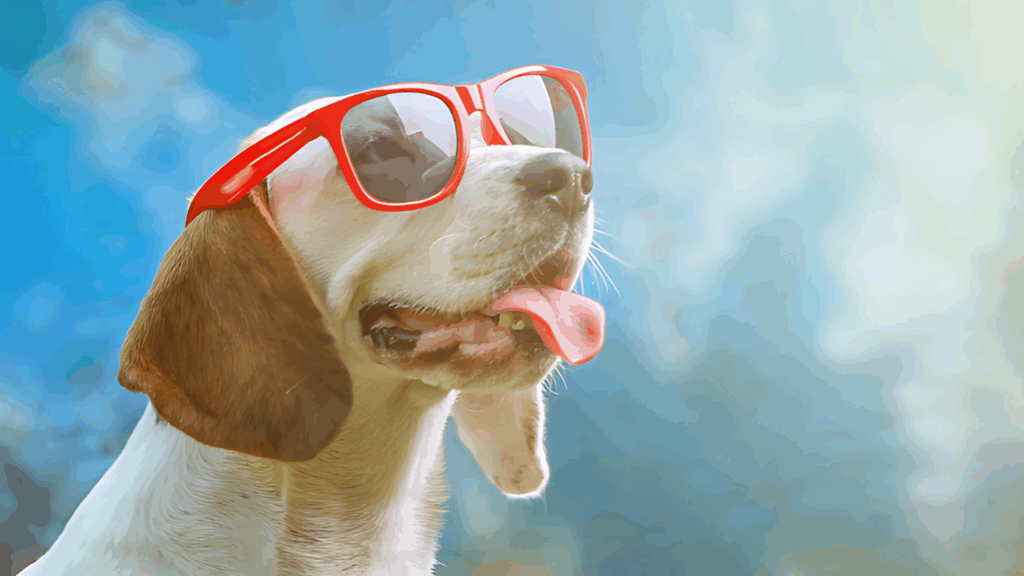
Beat the Heat: How to Keep Your Dog Cool, Calm & Well-Behaved All Summer
Too hot to handle? Don’t sweat it—literally. This summer survival guide shows you how to keep your dog cool, calm, and well-behaved without melting in the heat. From mental games to water play, you’ll get easy, low-effort ways to avoid the “bored and naughty” summer dog syndrome.
Is your dog acting out more now that it’s too hot for regular walks?
👉 Click here to read the full blog!

4 Secrets to Helping Your Reactive Dog Stay Calm Around Triggers
Reactivity isn’t always loud and dramatic—sometimes the biggest breakthroughs happen when nothing happens at all. Calm glances, quiet moments, and subtle check-ins are what retrain your dog’s brain. You don’t need perfection, just consistency and timing. Want to know the 4 secrets that make reactivity training actually work?
👉 Click here to read the full blog!
